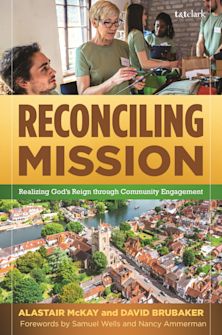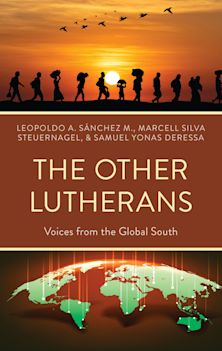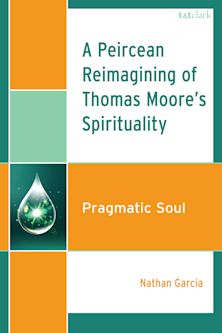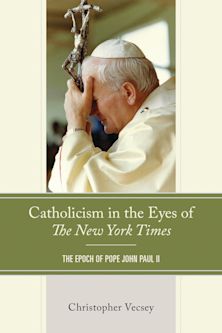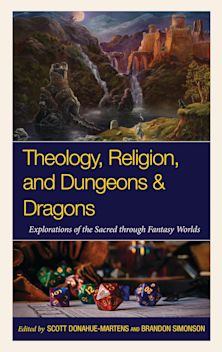- Home
- ACADEMIC
- Theology
- Theology - Other
- Theo-Politics?
Theo-Politics?
Conversing with Barth in Western and Asian Contexts
Markus Höfner (Anthology Editor) , Clifford B. Anderson (Contributor) , Kim-Kwong Chan (Contributor) , Kenpa Chin (Contributor) , David Haddorff (Contributor) , Angela Dienhart Hancock (Contributor) , Jeffrey Haynes (Contributor) , Oliver Hidalgo (Contributor) , Markus Höfner (Contributor) , Paul Dafydd Jones (Contributor) , Grace Yia-Hei Kao (Contributor) , Volker Küster (Contributor) , Pan Chiu Lai (Contributor) , Daniel Lee (Contributor) , Kin Yip Louie (Contributor) , Alexander Massmann (Contributor) , Charles Mathewes (Contributor) , Kristopher Norris (Contributor) , Gert Pickel (Contributor) , Xutong Qu (Contributor) , Hanna Reichel (Contributor) , Devin Singh (Contributor) , Chloë Starr (Contributor) , Günter Thomas (Contributor) , Michael Welker (Contributor) , Martin Wendte (Contributor)
Theo-Politics?
Conversing with Barth in Western and Asian Contexts
Markus Höfner (Anthology Editor) , Clifford B. Anderson (Contributor) , Kim-Kwong Chan (Contributor) , Kenpa Chin (Contributor) , David Haddorff (Contributor) , Angela Dienhart Hancock (Contributor) , Jeffrey Haynes (Contributor) , Oliver Hidalgo (Contributor) , Markus Höfner (Contributor) , Paul Dafydd Jones (Contributor) , Grace Yia-Hei Kao (Contributor) , Volker Küster (Contributor) , Pan Chiu Lai (Contributor) , Daniel Lee (Contributor) , Kin Yip Louie (Contributor) , Alexander Massmann (Contributor) , Charles Mathewes (Contributor) , Kristopher Norris (Contributor) , Gert Pickel (Contributor) , Xutong Qu (Contributor) , Hanna Reichel (Contributor) , Devin Singh (Contributor) , Chloë Starr (Contributor) , Günter Thomas (Contributor) , Michael Welker (Contributor) , Martin Wendte (Contributor)
This product is usually dispatched within 2-4 weeks
- Delivery and returns info
-
Flat rate of $10.00 for shipping anywhere in Australia
You must sign in to add this item to your wishlist. Please sign in or create an account
Description
Using the theological work of Karl Barth as a resource for present-day inquiry, the contributors in this volume discuss the complex interconnections between the religious and the political designated by the term theo-politics. Speaking from various political and cultural contexts (Germany, the United Kingdom, the United States, Hong Kong, Taiwan, and the People’s Republic of China) and different disciplinary perspectives (Protestant Theology, Political Sciences, and Sociology), the contributors address contemporary challenges in relating the religious and the political in Western and Asian societies. Topics analyzed include the impact of diverse cultural backgrounds on given theo-political arrangements, theological assessments of political power, the political significance of individual and communal Christian existence and the place of Christian communities in civil societies. In their nuanced discussions of these topics, the contributors neither advocate for a privatized, apolitical understanding of the Christian faith nor for a religious politics seeking to overcome modern processes of differentiation and secularization. Critically engaging Barth’s theology, they examine the Christian responsibility in and for the political sphere and reflect on the practice of such responsibility in Western and Asian contexts.
Table of Contents
Christianity, Politics, and Culture: A Complex Relation in Western and Asian Contexts
1. Religion, Politics, and Sino-Christian Theology
Chloë Starr
2. Yes! Intercultural Existence Today
Volker Küster
3. Recent Male Circumcision Controversies, Barth, and Infant Baptism
Grace Y. Kao
4. Caesarean Section between High-Tech Medicine and a Theology of Birth: Developing an “Ethics of the Middle Range”
Martin Wendte
5. The Ecclesiological Implications of the Political Attitude of the Chinese Authority toward Christianity
Kim-kwong Chan
6. The Power of the Religio-Poietic Complex in Politics: Karl Barth's Strategies against the Nation Becoming Religiously Charged
Günter Thomas
Part Two
Legitimacy and Sovereignty: Political Power in Theological Perspective
7. Constitutional Theology: Karl Barth and Carl Schmitt on Legitimacy and the Rule of Law
Clifford B. Anderson
8. A Tale of Two Sovereignties: Karl Barth and Carl Schmitt in Dialogue
Devin Singh
9. The Political
Product details
| Published | 25 Oct 2021 |
|---|---|
| Format | Hardback |
| Edition | 1st |
| Extent | 512 |
| ISBN | 9781978710054 |
| Imprint | Fortress Academic |
| Dimensions | 238 x 161 mm |
| Publisher | Bloomsbury Publishing |
About the contributors
Reviews
-
May Karl Barth have something of value to say on theo-political themes today, more than half a century after his death, not just in the West, but also in Asia? The present volume provides robust, multifaceted and interdisciplinary answers to this question. Some of the authors point out Barth’s radical rejection of political ideologies and all forms of absolutizations, his emphasis on contingency and ambiguity in human affairs, or his denunciation of any withdrawal from the world. Others place his contribution in conversation with thinkers such as Carl Schmitt, Alexis de Tocqueville, or John Howard Yoder. Substantive theological conversations between Western and Asian scholars are urgently needed; this book is an excellent confirmation of the potential fruitfulness of such encounters
Christophe Chalamet, University of Geneva
-
This unique collection of essays examines the relationship between religion and politics from a fresh and compelling angle, applying Barth’s thought to this vital nexus in Asian, European, and North American contexts, past and present. Bringing together a stellar cast of scholars from across the globe, this volume amounts to a feast. Any reader interested in political theology, Christian ethics, the legacy of Karl Barth, or theology and Christianity in Asia will want to ruminate on and savor the rich and creative contributions in this book.
Han-luen Kantzer Komline, Western Theological Seminary
-
This volume demonstrates in an excellent way several things: on the one hand, that Barth's theology can serve as an international basis for discussion across contexts; on the other hand, that Barth's theopolitical thinking can be applied to the grand international challenges of the present. Barth's theology, as a dialectical theology, is always dialogical in nature and as such enables us to think in a dialogical way that proves itself interculturally. It is anything but a monologue in heaven. The present volume provides evidence that Barth's theology, with its theopolitical orientation, powerfully stimulates intercultural conversation. Of which other theological school of the 20th century could the same be said?
Marco Hofheinz, University of Hannover
-
Doing theology with context and understanding the context with theology are not mutually exclusive. Rather they can be seen as two sides of one coin. Or their reciprocal relationship may be a kind of asymmetrical. Theologians from various contexts, Western and Asian, through conversing with Karl Barth help us to understand more about not only Barth’s theology but also the contexts we are dwelling in. This is a timely publication in this highly uncertain political age.
Andres S. Tang, Hong Kong Baptist Theological Seminary
-
Theo-Politics: Conversing with Barth in Western and Asian Contexts succeeds because it remembers (and reminds its readers) that all theology is contextual theology and that Europe is no longer the natural hegemonic center for Protestant thought. The volume treats an extraordinary range of topics from medical ethics to political psychology, from surveillance technology to globalization, and from church-state relations to sovereignty, critique, and citizenship, all while attending to particularities of place. This not only draws out the full and sometimes unexpected salience of Barth's work, it also pivots from Barth to show the distinct ways that theological ideas might rematerialize to disrupt and restructure global networks of power.
Michelle C. Sanchez, Harvard Divinity School
-
This is a superb book that offers top-notch essays that have emerged from years of dialogue among both established and up-and-coming scholars on a timely and important topic. Theo-politics is as important now as ever and this book demonstrates what Karl Barth has to contribute to these conversations in surprising and unexpected ways. I recommend it as essential reading for Barth scholars and political theologians alike.
Tim Hartman

ONLINE RESOURCES
Bloomsbury Collections
This book is available on Bloomsbury Collections where your library has access.














